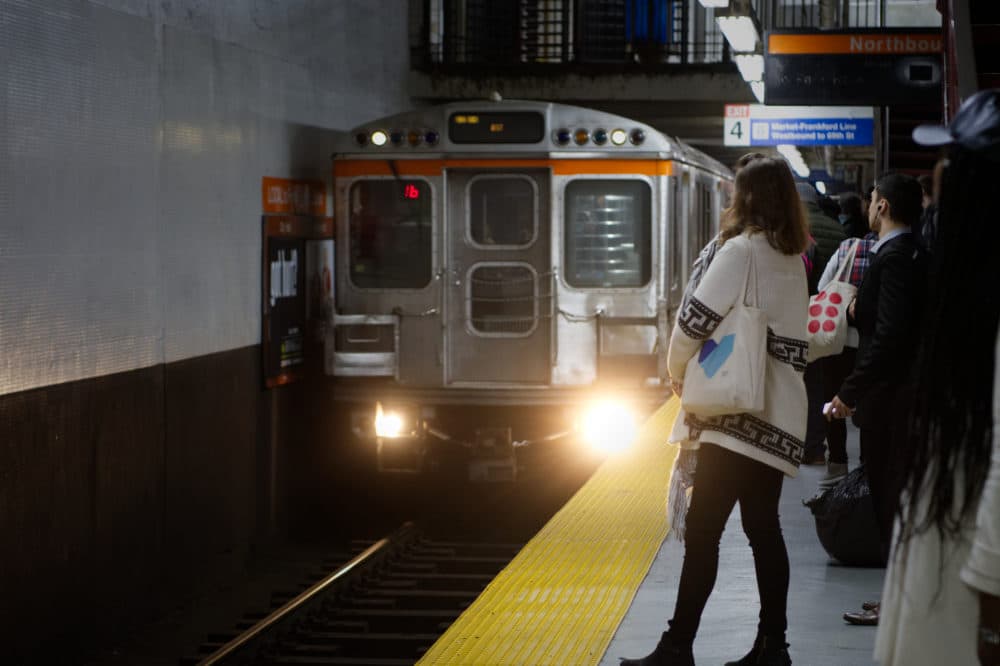Advertisement
Commentary
We’re still failing victims of sexual assault

Editor's note: Since the piece below was published, new reports have called into question the original reporting of the alleged assault. The narrative that passengers callously watched the attack take place without reporting it to police is false, according to the prosecutor handling the case. Working with the author, we have updated the piece and the headline accordingly.
Last Wednesday, a woman was allegedly raped on a train near Philadelphia. About eight minutes into the attack, an employee discovered what was happening and called the police. The assailant is currently in custody.
Now, investigators want to know: Could the other passengers have done more to intervene?
After the incident was first reported, Timothy Bernhardt, superintendent of the Upper Darby Township Police Department, told reporters he was appalled by what transpired. “Anybody that was on that train has to look in the mirror,” he told The New York Times. He expressed the opinion that they "should have done something.”
New reporting by the Associated Press and The New York Times is uncovering more about what happened that evening. The details of the story are still evolving, but it is reported that there were about 10 people on the train that night — and that one of them phoned the SEPTA police, resulting in the attacker’s arrest.
We don’t yet know who saw what and when. But that it was at all believable that passengers would stand by and do nothing to interrupt a violent crime says a lot about rape culture in America. Because honestly, I can't imagine a better analogy for our treatment of women in this country than a group of people witnessing a rape and doing nothing.
Ten years ago, I was penetrated against my will by a man I met at a college party. My assault took place in the passenger’s seat of a cab, and I had witnesses too. A good friend was sitting in the back seat, along with another acquaintance. For the 30 minutes my assailant spent forcing his fingers inside me, the cab driver stared straight ahead at the road. The two other passengers stayed silent.
I can't imagine a better analogy for our treatment of women in this country than a group of people witnessing a rape and doing nothing.
Rape culture refers to the social attitudes that normalize sexual violence, often resulting in victim-blaming and a lack of criminal action. According to RAINN (Rape, Abuse & Incest National Network), one in six American women has experienced an attempted or completed rape in her lifetime. With the rise of social media movements like #MeToo, awareness and discussion of sexual violence appears to be growing exponentially. Allegations against high-profile men, including film producer Harvey Weinstein and Supreme Court Justice Brett Kavanaugh, have forced us to reckon with how toxic masculinity and power conspire to both target and silence victims. Thousands of women are speaking truth to power in sharing their most harrowing traumas; each voice increases the volume on our rallying call to action. I have spent countless hours reading the stories of these courageous souls, horrified and awed in equal measure.
And yet, again and again, we are reminded that survivors’ voices don’t matter — or at least not enough to effect meaningful change. We elect public officials accused of sexual assault to the highest offices in our government. Child molesters walk free and hold power in our holiest spaces. Rape kit after rape kit goes untested. Victims continue to endure a “second assault” in facing criminal justice systems that belittle and disbelieve them. Collectively, we respond to sexual violence in culturally conditioned ways: with resounding, deafening silence.
I never confronted my friend about what happened the night of my attack. The truth is, at the time, I didn’t think she’d done anything wrong. In my mind, the assault was my fault: I’d been drunk; maybe my dress was too short. She, too, had been the victim of rape just a few weeks earlier. I’d reached out to her after her assault, offering my help. We never spoke about it again. Now, I regret not checking in with her about how she was doing. I regret saying nothing when I heard friends whispering about what they perceived as her sexual promiscuity.
The hard truth is that I am both a victim and perpetrator of our rape culture.
The hard truth is that I am both a victim and perpetrator of our rape culture. How can we break cycles of silencing so pervasive we’re barely aware they’re happening? And how do we protect each other not just from rapists, but from a culture that emboldens perpetrators and disempowers survivors?
I don’t believe the other passengers on the Philadelphia train were necessarily bad people. Certainly, there are rational reasons not to intervene in a crime, including a fear of retaliation, or the hope that someone else will step in instead. New reporting calls into question whether witnesses were even aware of what was happening. What worries me most is the collective failure of our culture as a whole. We can reprimand the bystanders on the train all we want. But when it comes to watching violence unfold on a societal scale, failing to act, again and again, we are all complicit. And it’s time we all took a long look in the mirror.
This article was originally published on October 21, 2021.
